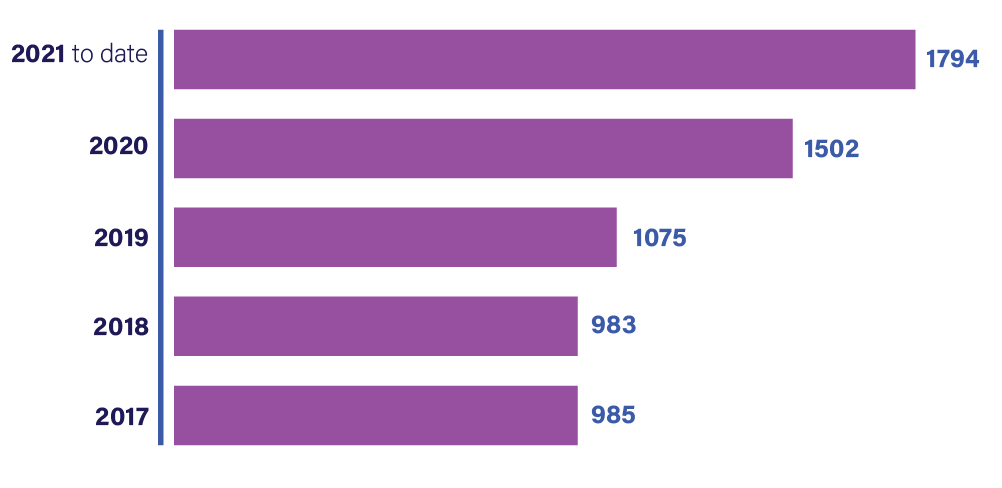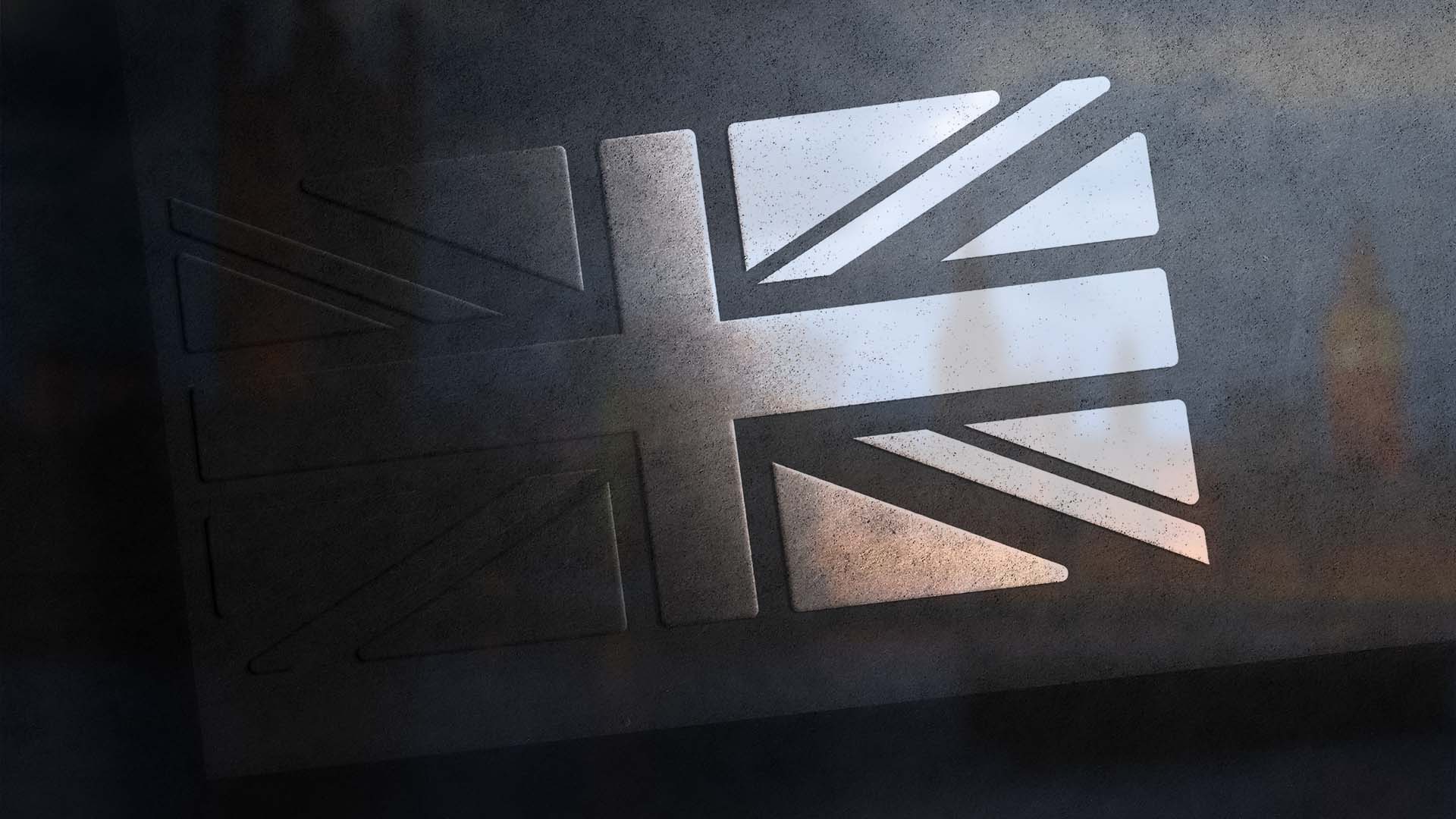Ever since the Phoenicians sought Cornish tin, the United Kingdom in all its forms has been visible in overseas markets to a greater or lesser extent.
Through fortune or tragedy, war or celebration, British manufactured goods are recognised across the world.
They have been an instrument of economic wealth and global status. The country has made its mark.
In 2011, Prince William married Katharine Middleton; Osama Bin Laden and Muammar Gaddafi were killed; a Tsunami hit Japan. Simultaneously, the world was recovering from the impact of the 2008 financial crisis. The UK needed to maintain and promote the integrity and quality of British goods across the globe. Made in Britain, a newly formed membership organisation, was part of the solution. Eligibility criteria was strict and only companies who met those standards were allowed to use the stylised image of the Union Jack. The accreditation mark was distinct. It trumpeted pride in quality and heritage: as important for sellers as buyers. British goods had a brand, a recognisable endorsement for all to see.
Ten years on, manufacturers are yet again facing an uncertain future. They are unsteady from the triple effect of the pandemic, Brexit and supply chain delays.
Using the Made in Britain mark had worked as a reveille in 2011.
The question?
Is the mark redundant when origin of British goods in Free Trade Agreements provides a competitive advantage?
Does the British mark retain any value or is it a vanity?
New World Order
Covid, trade wars, environmental degradation, climate change and migration have affected global trade significantly. In the UK, Brexit changed the rules. For the first time, a member country left an Agreement to trade on preferential terms. The UK has always been brave!
H.M. Government wants to create a Global Britain, to ‘grow our slice of the global pie’ (Truss, House of Commons 2021). Companies are being urged to promote their products overseas, a common goal for countries striving to improve their power, their economy, living conditions or, even their bank vaults. Same goal, different reasons. The United Kingdom is a small island with renewed ambition.
The UK is responding to a new technical era. Funding is available to support innovation across sectors, with new materials for new purposes. Manufacturers are progressive in design, creative in providing solutions and world leaders in many fields. Yet the country seems to have become an ageing lion – a muted voice between giant economies. It is in a race to be in the race – a contender not a bystander. Although new strategic alliances have raised its profile, it is diminished in place and influence.
Agreeing and implementing a Trade and Cooperation Agreement with the European Union brought change and disruption to UK traders. Skills needed to be learnt and overseas sales strategies were reviewed. The country was in an economic shock. The government embarked on the creation of Free Trade Agreements with the rest of the world – some as continuation of those the UK had as a member of the EU, some new.
These agreements signalled an open door for those prepared to take advantage of the opportunity. Indicative of mutual regard and an opportunity for both signatories it allows for zero or reduced duty for our exported goods when the origin of those goods is British. UK products become competitive in overseas markets.
Yet, despite the perceived prospect of Free Trade, the increase in documentary requirements and evidence belies the term. Companies must evidence the origin of their goods through a calculation of components to provide documentary proof.
It was expected that British traders would take advantage of these agreements. If media is believed there are a significant number across the globe. However, the reality is stark, we have not agreed anything with major economies so for some exporters there is no duty reduction at all. The benefits of the agreements are limited.

Map: showing Free Trade Agreements with the UK – ratified, applications and bridging. Conformity agreements shown do not result in tariff reductions but indicate technical conformities. Source: www.gov.uk
Made in Britain mark – anachronism or advantage?
The UK has a reputation that echoes history, values, and ambition. The country is small, but it has always been at the fore of industrial change. It is not scared of challenge, nor of change. As the world tackles climate-change it is an influencer of note. It is on the stage, shining a spotlight with opinion and technology.
Careers are being forged across tactical and strategic roles in International Trade. New skills such as Global Trade Blueprint Programme are being developed. There is a deluge of training: courses covering a plethora of topics from documentary compliance (useful for understanding the rules of Origin) to accessing new markets. For those in marketing, adapting the message to linguistic, customs, culture and language is vital.
This is exactly where the impact of the Made in Britain mark lies. The symbolic logo conveys implicit values of respect and trust. Promotion of the logo on a website, marketing material or product indicates that a company is as proud of its produce as someone receiving an Oscar. It is a selling tool with integrity and there is evidence of growing recognition and use.

Displaying the mark distinguishes companies such as Vauxhall and Cygnus Instruments. It is unsurprising perhaps that that Flying Colours Flagmakers are also amongst the member organisations.
John Pearce, CEO Made in Britain comments:
Over the last year we’ve been growing at our fastest ever rate as manufacturers seek to capitalise on the rising demand for goods made in this country post-pandemic and post-Brexit.
The mark supports the visibility of UK and its manufactured goods. It provides a distinct identity in markets to similar or cheaper alternatives. It is a metaphor for pride in British goods, attracting discerning buyers from across the globe. The start of business. The way British manufacturers attract attention. It is not only indicative of past identity and status, but a step towards economic success and sustainability for British industry.
The cost benefits for British made goods gained through Free Trade Agreements aid competitiveness in a destination country. But only in signatory countries. It is appreciated but limited in scope.
In comparison, the mark is unique and universal in use. It says as much about the seller as the buyer. It reflects the mantra that ‘Quality Sells’. An army always wears its colours with pride.
It seems that British manufacturers are set to mirror that tradition by proudly doing the same.
Founder and Managing Director of International Trade Matters, Linda Middleton-Jones has more than 25 years’ experience in international commerce across manufacturing, nuclear and aviation sectors from her base in South West England.
Contact Linda and the team of international trade specialists today!
References:
Trade deals: The UK’s trade agreements – GOV.UK (www.gov.uk)
WTO: Strategic Intelligence (weforum.org)
Made in Britain: www.madeinbritain.org/
Institute of Export & International Trade: The Institute of Export and International Trade
Export READY: International Trade Matters: Export READY – Unlock Your Export Potential (internationaltradematters.com)
Funding: Innovate UK – GOV.UK (www.gov.uk)



